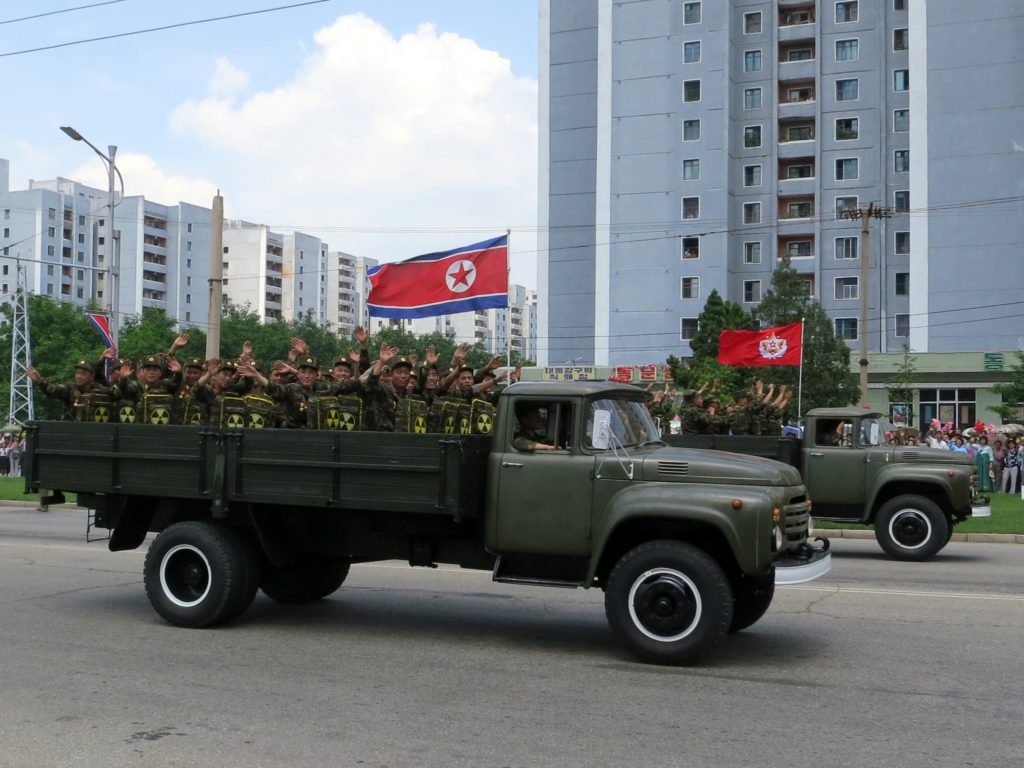The Peninsula
North Korea Test Moratorium Not as Significant as It Seems

By Troy Stangarone
In what is being hailed as a significant step by the United States and South Korea, North Korea has announced that it has suspended missile tests and will shut down its nuclear test site. While seemingly an important step towards denuclearization, the move by North Korea only affirms prior statements by the regime.
Shortly after conducting its third intercontinental ballistic missile (ICBM) test and in Kim Jong-un’s New Years Day Address, North Korea had suggested that it had concluded testing for its nuclear program. Since North Korea’s third ICBM test, it is now in the midst of one of the longest pauses in tests under Kim Jong-un. While there are still questions regarding the development of North Korea’s ICBMs, it is this pause that made the upcoming talks between Kim Jong-un and President Trump possible.
However, in light of its earlier announcements, North Korea’s pause in testing was an easy concession to the United States and South Korea, and the announcement of an end to testing is not as significant as it may seem. Any further tests on the part of North Korea would have either been an acknowledgement that it had not actually completed its tests, or would be intended as a clear provocation designed to raise tensions.
In addition, there were already concerns about the geological stability of North Korea’s nuclear test site at Punggye-ri. Since the last nuclear test there have been further signs of instability.
This is not the first time that North Korea has made a largely symbolic gesture in relations to its nuclear program. During the Six Party Talks, North Korea made the dramatic gesture of blowing up the cooling towers at the Yongbyon nuclear power plant to demonstrate its commitment to denuclearization. Those talks ended up failing over North Korea’s refusal to agree to verification procedures. In this case, resuming use of its nuclear test site will be significantly easier than restoring the cooling systems at Yongbyon should North Korea decide to change course.
The announcement also does not does not commit North Korea to denuclearization or to abandon the other significant plan Kim Jong-un laid out in his New Year’s Day Address – to expand North Korea’s stockpile of nuclear weapons and ballistic missiles. In advance of the summits, it would have been more impressive if Kim Jong-un had offered to suspend uranium enrichment or missile production during the upcoming talks, though these steps would also be unverifiable without intrusive inspections.
The announcement does, however, fit into North Korea’s outreach that began at the beginning of 2018 when it announced that it would take place in the PyeongChang Olympics. North Korea may be making a strategic decision eventually to dismantle its nuclear program, but the recent announcement on a suspension of testing and the closing of its nuclear test site should be viewed more as a public relations move than a real step towards denuclearization.
Troy Stangarone is the Senior Director for Congressional Affairs and Trade at the Korea Economic Institute of America. The views expressed here are the author’s alone. Image from Wikimedia Commons.
